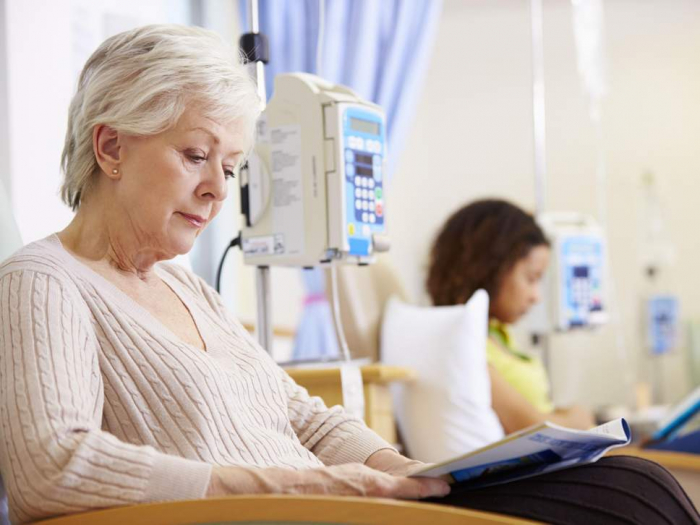Researchers at the Royal Marsden NHS Foundation Trust said their findings added to the growing body of evidence that gender can be an important factor in cancer treatment.
The study, which is being presented at the European Society for Medical Oncology (Esmo) Congress in Munich, Germany, analysed data from four randomised trials carried out in the UK and Australasia.
All four pieces of research looked at commonly used first-line chemotherapy combinations in advanced oesophageal and stomach cancer.
Data from 1,654 patients (1,328 men and 326 women) showed that women experienced significantly higher rates of nausea and vomiting (89 per cent for women compared with 78 per cent of men) and diarrhoea (54 per cent versus 47 per cent).
Hair loss was also suffered more by women – 81 per cent compared with 74 per cent of men - while mouth ulceration occurred in 50 per cent of women versus 41 per cent of men.
The occurrence of "serious adverse events" during treatment - potentially serious treatment complications which often require hospital admission - was also higher in women.
There was a trend towards more infections in women as a result of low white blood cell counts, although this did not reach statistical significance.
When looking at chemotherapy effectiveness, there was no difference in survival between men and women, although overall response rate to chemotherapy - the proportion of patients experiencing a reduction in tumour size - was higher in men.
Dr Michael Davidson, clinical research fellow at the Royal Marsden NHS Foundation Trust, said: "Our findings show that women seem to experience higher rates of certain chemotherapy side-effects than men in this cancer type, particularly those related to gastro-intestinal function.
"We have known for a long time in oncology that there are differences between males and females in the incidence and prognosis of many non-gender-specific cancers. However, we are only just beginning to understand how genetic and biological differences between men and women influence cancer development and response to treatment.”
He added: "There is also ongoing research looking at differences in how men and women respond to newer anti-cancer treatments such as immunotherapy and it is an area that is likely to become increasingly important in the future."
Professor David Cunningham, director of the NIHR Biomedical Research Centre at the Royal Marsden and the Institute of Cancer Research, London, said: "This work adds to the growing body of evidence that gender can be an important factor in cancer treatment and that clinicians need to be aware of such differences.
"For example, knowing female patients are more likely to experience side effects such as nausea and vomiting or diarrhoea may allow for more tailored chemotherapy education and support to be given in order to optimise the management of these common problems."
The Independent
More about: chemotherapy
















































